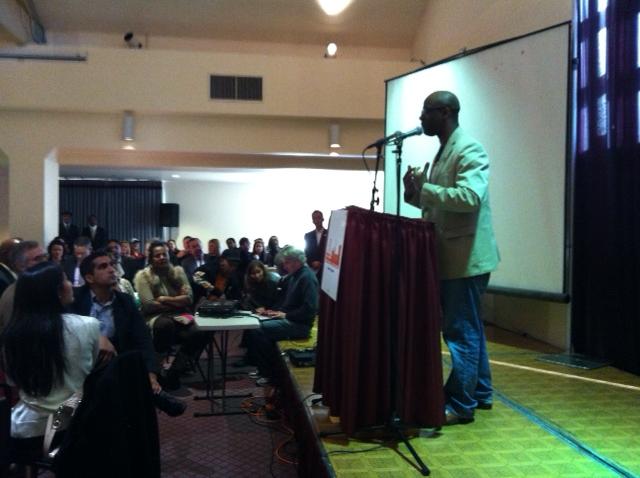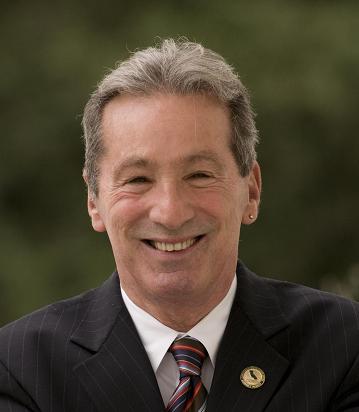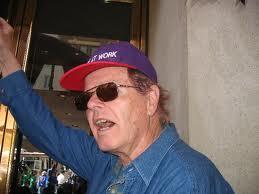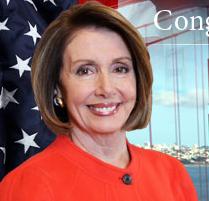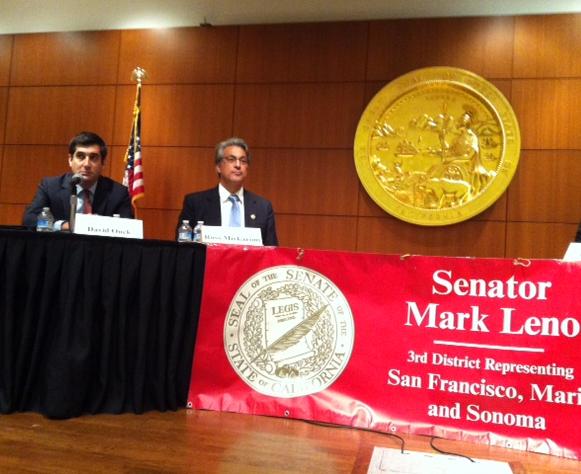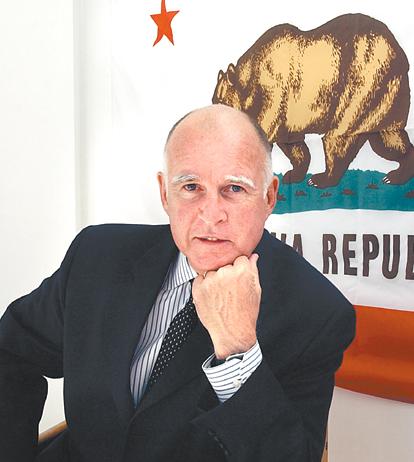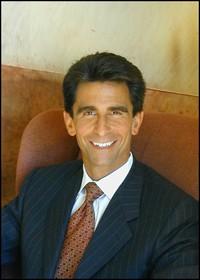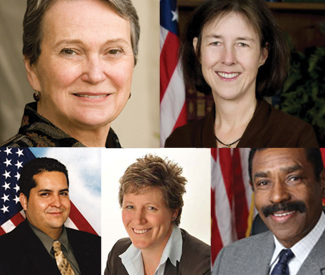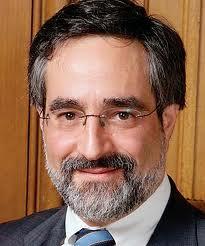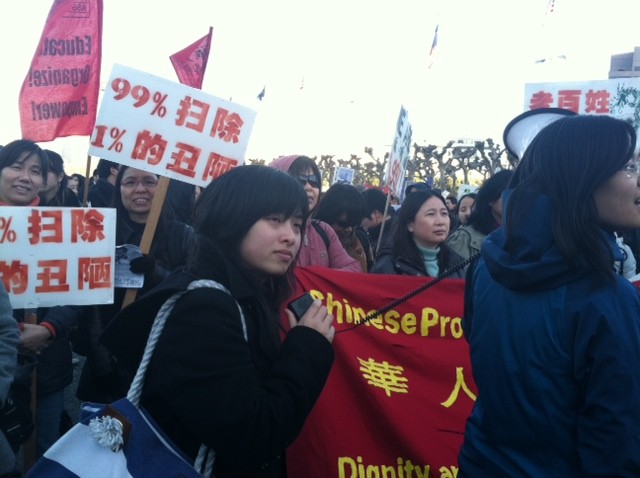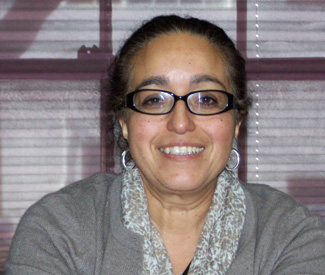Documentary filmmaker and longtime queer community activist and leader David Weissman is leaving San Francisco — because he and three other tenants of his place on Oak Street have been evicted under the Ellis Act. These evictions are happening all over town; it’s a disaster. Weissman isn’t going quietly, though; he’s penned a sharp letter to Sup. Scott Weiner that’s making the rounds in tenant and LGBT circles and creating enough controversy that Wiener has put out a long response.
Weissman told me the rash of Ellis Act evictions is horrifying, particularly when seniors are involved. “So many people who have lived through the AIDS epidemic are now finding themselves unwanted and adrift,” he said. “There have always been two competing visions of San Francisco, and the one that’s ascendant now says that people who can own property and make a lot of money will make this a better city. But I’ve always believed that what makes this city great are the creative types who don’t always have a lot of money.”
Read his letter to Wiener and the supervisor’s response after the jump. (UPDATE: It’s worth noting what Weissman posted below, that he is not becoming homeless and spends half his time in Portland, where he will no doubt now live. He won’t be a San Franciscan any more. He writes: “Thanks to everyone for your kind words of support. The letter was intended to bring attention to the larger issues at stake, that most renters in SF are in serious and increasing risk of Ellis Act eviction. As most of you know, my own situation is unusual, in that I’ve been living back and forth between SF and Portland since 2004, with the full knowledge of my benevolent late landlords. I will always be a San Franciscan in my heart, and am trying to find ways to maintain some kind of base there.”
Dear Supervisor Weiner:
We’ve met a few times. I’m the producer of the documentaries We Were Here and The Cockettes, both of which chronicle the history of Gay San Francisco. I’ve been a San Franciscan since 1976. In 1979 I was on the campaign staff of Prop R, a rent-control initiative that didn’t pass, but which pushed the Board of Supervisors to pass the significantly weaker Rent Stabilization and Arbitration Law. I subsequently became a Legislative Aide to Supervisor Harry Britt. I worked a couple of campaigns with Dick Pabich and Jim Rivaldo, and also worked closely with Bill Kraus — heroic leaders whose names I hope are familiar to you.
I am being forced out of my apartment that I’ve rented since 1986 due to the Ellis Act. This will end my 37-year residency in San Francisco. I must say that I find your policies regarding housing in San Francisco — your consistent bias toward home ownership at the expense of tenants and affordability, to be dismaying, and an affront to the legacy of Harvey Milk. In my own situation, it has been extremely clear that the limitations on condo conversion provided somewhat of an impediment to the immediate eviction of everyone in my building (all gay, 3 out of 4 of us are seniors), motivating the landlord to at least pay us to leave rather than just evict us at very minimal cost to him. But even this is appalling — your efforts should be toward further combating the effects of the Ellis Act, rather than contributing to the tsunami of evictions that is destroying the fabric of our City. No buyout can compensate for the loss of our homes.
I don’t doubt that you have good intentions, and that you have done some good things as Supervisor. Though you didn’t live here in the worst of the AIDS years, I assume you’ve been somewhat impacted by that history. But for those of us who elected Harvey Milk, who fought the Briggs Initiative and Anita Bryant, who created this amazing gay community centered around Castro Street, and then who fought for our lives and the lives of our brothers through two decades of AIDS deaths… having a gay supervisor promoting policies that are forcing so many of our generation out of our homes and out of the City to which we have given so much is heartbreaking.
Wiener’s response, posted on Facebook:
Hi David. Yes, we have met several times, and I’ve always been a huge admirer of your work. You’re an icon in our community. “We Were Here” is one of the best and most moving films I’ve ever seen.
Your email is deeply distressing to me. It’s awful that the Ellis Act was used to evict you and the other tenants out of your building. I don’t support the Ellis Act and I publicly supported Mark Leno’s (unfortunately unsuccessful) legislation to restrict its use. Back in the 90s, when I was a new lawyer, I defended numerous tenants against the wave of evictions at the time, both Ellis Act and Owner-Move-In evictions, and it was as heartbreaking then as it is now. I’m truly sorry that this happened to you and sorry for the City that you now are leaving. I would be more than interested in helping you find a place in San Francisco that you can afford. Please let me know if you want my help in that effort. I’m at your disposal.
It took me a day to respond to this email, because it’s a challenging response to write. Something terrible happened to you. You have every right to be angry and frustrated that so many great years in San Francisco, building our community, may come to an end this way. (I truly hope that we can avoid that, of course.) But, I do need to respond to some things that you said in your email about me. I hate to have to respond -– since what happened to you was so awful -– but I don’t think that your comments about me, which you’ve now disseminated publicly, are fair or accurate. It’s not accurate to describe my policy bent as having a “consistent bias toward home ownership at the expense of tenants and affordability.” I know you disagree with my legislation to provide one-time relief to owner-occupied TICs that are at risk of foreclosure, and I’ll get to that in a bit. I’m not sure how much you know about my public positions and votes over a decade on housing issues, but I’ll describe them for you. While I do support helping people achieve home ownership –- and I don’t in any way run away from that — I’ve supported just about every pro-tenant measure that’s appeared on the ballot, including measures that my predecessor and Mayor Newsom opposed (that’s not a criticism of my predecessor or Mayor Newsom, both of whom I strongly supported, but we had a difference of opinion). I supported Prop B, which required disclosure to prospective condo purchasers of the unit’s eviction history. That went on the ballot after the Mayor vetoed it, and I supported it. I supported Prop H, which increased relocation payments to tenants in no-fault evictions. That went on the ballot after the Mayor vetoed it, and I supported it. I supported Prop M, which banned and created penalties for harassment of tenants. That went on the ballot after the Mayor vetoed it, and I supported it. And, as noted, I supported Mark Leno’s effort to restrict the application of the Ellis Act. I also supported limiting or banning condo conversion for units that were made vacant through use of the Ellis Act.
As a member of the Board of Supervisors I’ve continued my work supporting tenants. I authored and passed legislation banning universities (including Academy of Arts University) from converting rent-controlled apartment buildings into student dorms. That was a huge win for tenants, and I pushed it through against intense opposition. I authored and passed the Good Samaritan Ordinance, which was supported by tenants groups and which provides affordable temporary apartments for tenants who are displaced by disasters.
Now, let’s talk about my work around affordable housing. I was one of the people who negotiated the Affordable Housing Trust Fund, Prop C, which appeared on last November’s ballot and won. I campaigned for it passionately. It will generate $1.5 billion for affordable housing in coming decades. I’ve been closely involved with the 55 Laguna project, which will create quite a bit of affordable housing, including affordable housing for LGBT seniors. I’ve supported every transition-age youth housing project that’s come to the board, all of which have been controversial. I’ve publicly begged Larkin Street to create more youth housing in the Castro.
I stand by my record on housing policy, including support for tenants and for creation of affordable housing. Your perception of my overall record simply isn’t accurate.
As for my TIC legislation, I respect your opposition to it, but I don’t think it’s fair to state that by helping struggling TIC owners stay in their homes –- and helping them avoid foreclosure -– I’m forcing gay people from their homes. David, you and I don’t know each other well, but if you got to know me, you’d know that I’ve spent my entire adult life (which has been more years than you might think) fighting for the LGBT community. Whether playing a key role in building the LGBT community center, fighting my neighbors on Collingwood Street when they tried to get rid of LYRIC, leading the charge to restore HIV funding cuts in our city budget, to helping get transgender people health coverage under Healthy San Francisco, or sponsoring the legislation that created the LGBT senior task force, support for my brothers and sisters in this community has been at the core of everything I do.
The TIC legislation is not what its opponents have painted it to be. I’ve posted a full explanation of the legislation here.
This legislation provides one-time relief to TIC owners in owner-occupied TICs that are in the condo lottery. San Francisco law restricts or prohibits condo conversion for buildings that have had Ellis Act or other bad eviction history. This legislation sticks by those restrictions. These TIC owners are in serious trouble. They purchased thinking they’d be able to convert in 5-7 years. It’s now looking like 15-20 years. That’s 15-20 years on a group mortgage –- where if one owner defaults everyone defaults -– paying double the interest rate of other homeowners, and being unable to refinance even if you’re about to experience a balloon payment on the mortgage. If we don’t help these TIC owners, we’re going to see a wave of foreclosures and people losing their homes. While I fully understand the opposition to condo conversion, I guess my question is whether allowing these homeowners to go into foreclosure is a good thing for the city. I don’t think it is. This is a one-time and discrete piece of legislation designed to help a group of San Francisco residents -– primarily long-time residents -– who are in serious trouble.
These TIC owners aren’t aliens who landed here and snapped up units. Almost every TIC owner I’ve ever met is a first-time homeowner who rented for years (often renting for a lot of years) and then scraped together a down payment to be able to purchase a place. They’re middle class, since if they were wealthy they’d be able to buy more than a TIC. Many are people who’ve lived here for a very long time –- 15, 20 years or longer. Many are gay. These are San Franciscans just like you and I are. They, too, are part of the fabric of our city. I don’t think it’s anti-tenant, anti-gay, or anti-anything to provide them with some help by letting them condo convert their units so that they can have housing stability.
It’s estimated that 85% of these TIC units are owner-occupied. And for the very small number of tenants who live in these buildings, the legislation mandates that they receive lifetime leases with full rent and eviction controls. Again, 85% of the units are occupied by their owners.
David, I regret having to respond to you like this. That’s pretty much the last thing I want to do with someone who’s going through something as traumatic as what you’re experiencing. But, since you made a pretty bald public assertion about what I stand for and who I advocate for, I thought it necessary to respond.


